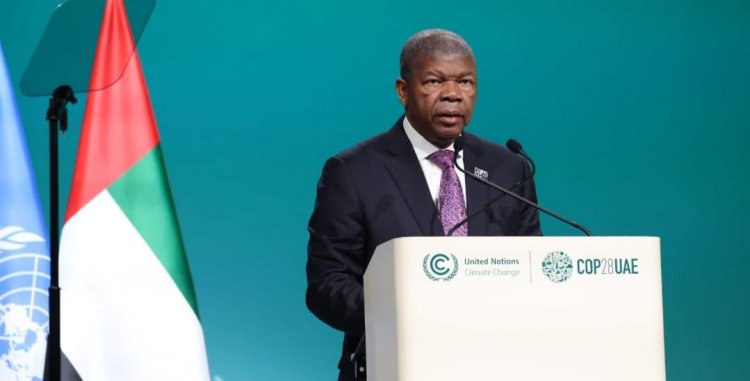"We consider it important that at this COP28 [28th United Nations conference on climate change] a roadmap is defined in which the steps to be taken are established, so that the commitments made at the Glasgow COP [in 2021] are honored, in which the objective of doubling funding for adaptation measures by the year 2025 was defined", said, on Saturday, João Lourenço, in his speech in the United Arab Emirates, where the meeting is taking place.
"Climate financing for the period after 2025" must take into account "a whole set of factors that do not weaken or weaken the economies of developing countries, which are not capable of giving up natural resources from one moment to the next sources of currency, namely oil", said the head of state of one of the largest hydrocarbon producers in the world.
João Lourenço highlighted the "need to fulfill the repeated promises of financial contributions and access to financing under favorable conditions for the least industrialized, least developed countries, with emphasis on small island states", which are also the most threatened.
Therefore, the Angolan leader hopes that "the growing sensitivity of the people and nations of the world to issues related to the climate" can lead to, this time, the goals being "faced with more commitment and more determination".
However, even without adequate financing channels, "the issue of climate change is part of the central priorities in all sustainable development programs and strategies that we outline in the Republic of Angola", stated the minister, who recalled the National Strategy for Climate Change 2022/2035.
"We highlight our commitment to renewable energy, which represents one of the main pillars of adaptation to climate change" and "we are determined to change the national energy matrix, favoring clean energy production sources with the construction of hydroelectric plants and photovoltaic parks", an area that represents more than 65 percent of the energy produced in the country.
"With the ongoing program to extend the national energy transmission network from the main production sources located in the Baixo Kwanza basin to the eastern and southern provinces of the country, our ambition for the next four years is to discontinue the use of thermal power plants that still power some parts of the national territory", explained João Lourenço.
On the other hand, the country is "building new and expanding old hydroelectric dams, which have provided the country with a significant increase in its energy production capacity and generated a surplus that can meet the needs of SADC countries [Communities of Countries of Southern Africa, in the English acronym], especially with the completion of the Caculo Cabaça hydroelectric plant and the start of work on the binational project of the Baynes hydroelectric dam on the Cunene River", which joins Angola and Namibia.
"Angola has been a victim of the phenomenon of severe drought in the south of the country, with devastating effects on the lives of populations and animal life", particularly in the south of the country.
"Due to the consequences of climate change, Angola had to seek urgent endogenous solutions to save entire populations from the effects of drought," he said, highlighting the construction of a 165-kilometer long canal and several retention reservoirs in the Cafu region, in province of Cunene, an infrastructure that solved the problem and helped create conditions for the development of family farming, he exemplified.







